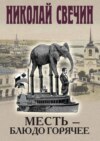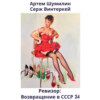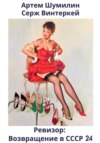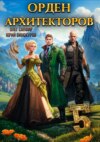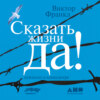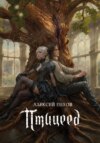Читать книгу: «Reminiscences of the Nineteenth Massachusetts regiment», страница 8
Arriving at the depot, we were placed in box cars, and, as usual on the southern railroads, the train ran off the track in a half-hour after we started, which delayed us several hours. The night was dark and rainy, and several escaped, among them Lieutenant Parker of the 1st Vermont heavy artillery. He was pursued by bloodhounds, and when we arrived at Columbia was brought in so terribly torn and bitten by them that he died before night.
CHAPTER XIV
COLUMBIA. – PRESIDENTIAL ELECTION
We arrived at Columbia in a drenching rain, were taken out of the cars, and remained in a field near the depot until the next morning. We had no chance to make a fire, and were wet, cold and hungry. Along the tracks were cars filled with families who had fled from Charleston and Atlanta. We saw several very beautiful ladies among them, dressed well, and wearing jewelry, but they were silent and sullen.
We were guarded by the Columbia Cadets, a fine body of young men from the military school. The command was given to fall in, and we were informed that we must march about a mile to a camp ground, and should be made very comfortable. On the way we passed the Confederate money factory. As the girls employed there came to the windows we called to them to throw us out a bushel or two, as they could make plenty more. They laughed, threw kisses at us, and for a moment we forgot that we were prisoners, and felt that we were going out on a picnic. We marched about two miles, and arrived at our camp ground. This consisted of several acres, covered with a second growth of wood. A guard line was made around it, and sentries were posted. Twenty feet from the guard line was the dead line. This time it was a furrow ploughed around the camp. Our cadet guards were relieved by the militia, and we were turned in like so many hogs.
These were the comfortable quarters promised. The wood and water were outside the lines, and we had to wait our turn to go out. No sinks were provided, and only twelve men were allowed out at a time. It was terrible. Nearly every man in prison suffered from diarrhœa. It was no uncommon sight to see one hundred men standing in line; many were obliged to remain there nearly all the time.
We were in this condition for more than a week, then eight axes and ten shovels were given the fifteen hundred prisoners, and the guard line was extended an hour a day, to give us a chance to cut wood and gather brush for shelter. Our little mess located under a tree, and our rule was that one should always be at home; but for some cause one day all were absent for a few moments, and when we returned could not find where we lived, as our tree had been cut down.
We had heard much of the sunny south, and did not expect cold weather, but the night of October 9 was so cold that we could not sleep, and a white frost covered the ground in the morning. Our rations were in keeping with the place. A pint of corn-meal, bitter and half bran, a day, and a pint of sorghum molasses for five days. We named the prison Camp Sorghum. Many could not draw the molasses, having nothing to put it in, but my old pitcher worked in handy for that purpose.
As soon as possible we began to build huts. We increased our mess to five, one having a blanket. We dug a hole in the ground two feet deep, covered it with poles set up on ends, then with brush, and outside a coating of dirt. This was first rate when it did not rain, but as soon as the dirt became wet it would soak through the brush and drop on us as we tried to sleep. At night four would lie down, then the fifth would squeeze in, covering us with our only blanket. When we wanted to turn over some one would say, “About.” The odd man would get up, all turn over, then he would jam in again. So we lay, packed like sardines in a box, keeping alive from the warmth we received from each other.
After a while sinks were dug, and the lines extended so as to take in the brook that ran in the rear of the camp. Nearly all the men were barefoot, and it was laughable to see us wash. We stood in the water, which was very cold, and danced while we washed our faces and hands.
Besides our other troubles we were in constant fear of being shot by the guard. One evening, as we were gathered in little groups around the fires, we heard a shot and saw Lieutenant Young of the 4th Pennsylvania cavalry throw up his hands and fall dead. Upon investigation we learned that one of the guards had asked another if he supposed he could hit a man at that distance. A doubt being expressed he drew up his piece and fired, with the result as stated. Another time an officer was waiting with his axe on his shoulder to go out for wood. He was standing several feet from the dead line when the guard fired, – killing him instantly. We made every possible effort to have the rebel officers take some action that would prevent our comrades from being murdered. The guard who did the shooting was relieved one day, and the next appeared on duty on the front line of the camp. As far as we could learn he was never reprimanded.
The presidential election was drawing near, and was the subject for discussion in the prison. The rebels were much interested in it, and their papers were filled with complimentary words for General McClellan, the Democratic nominee. They were sure that his election would bring peace, and that the south would gain its independence. They tried to impress us with the idea that the election of McClellan meant liberty for us, but as much as we desired release from captivity, we had learned that what the rebels desired was just what they ought not to have.
The election was held October 17. Why that day was selected I do not remember, but it is possible because we could not wait longer. We were to vote by States, the senior officers of each having charge of the poll. It was an exciting day. General McClellan had many warm friends, who had followed him in battle and loved him as their first commander, but it was evident by the debates that “honest Abe Lincoln” was the favorite with the majority. The polls opened at nine a. m.; the ticket distributors were on hand as at home. I think the polls closed at twelve m. Then all rushed to the bulletin board, where the returns were posted, to learn the result. Lincoln received one thousand twenty-three, McClellan, one hundred forty-three, and two hundred four did not take interest enough to vote. We Republicans were delighted, and expressed our joy by giving three hearty cheers. It told us that a large majority believed in the wise administration of Abraham Lincoln, and although many of them had been in prison sixteen months their faith had not been shaken. The excitement did us all good. The vote of Massachusetts was Lincoln, forty-three; McClellan, five. The only States that went for McClellan were Kentucky and Tennessee. Kentucky gave McClellan fifteen, Lincoln, thirteen; Tennessee, McClellan, thirty-one; Lincoln, twenty-six.
We had another pleasant event. One day some boxes came in, sent by our sanitary commission. They contained drawers, shirts, handkerchiefs and a few dressing gowns. There was enough for one article to each officer, and we drew them by lots. McGinnis was lucky, as he drew a dressing gown, and his clothing being worn out he used it for a full suit. He had been sick, and his hair had fallen from his head; he looked like the “priest all shaven and shorn” as he walked about the prison. I was not so fortunate, as I drew only a handkerchief.
The wardrobes of all required replenishing. I wore the same shirt I had on when captured, and although it had not been washed oftener than was necessary it was too thin for comfort. My light blue pants were worn at the knees and fringed at the bottoms, so I cut off the skirts of my dark blue coat to repair them. My hat was open at the top and the rim was nearly separated from the crown. I found an old piece of tent and made a new crown, and with the thread raveled out of the canvas sewed on the rim. My boots were worn out, and my feet were bare.
No meat of any kind was issued to us at Columbia, but we drew some one day quite unexpectedly. A wild boar rushed out of the woods. It passed the guard and came into camp. Every one was after it, and Captain Brown of a Pennsylvania regiment threw himself on the back of the hog and with his knife cut its throat. Without waiting to dress it, he began cutting off pieces and throwing them to the crowd. The smell of fried pork soon pervaded the camp, and in fifteen minutes after the boar passed the guard every particle was devoured.
Once in a while an officer would trade for a little meat, and while they did not entertain company frequently they sometimes gave banquets. Captains Hastings and Creasey and Lieutenants Cross, Moody and Chute messed together. One day they obtained a shin bone with a little meat on it, and were going to have a grand dinner. I was invited as their special guest. They had some rice and made dumplings out of their corn-meal ration. Captain Hastings was cook, but we sat around to rake the fire and make suggestions. We would taste of it as it boiled, and could hardly wait for the captain to pronounce it cooked. The kettle rested on two sticks, and just as we were getting ready to take it from the fire the back stick burned in two and over went the soup. We looked at each other for five minutes without speaking, then I arose, said I guessed I would not stop to dinner, and went back to my quarters a hungry, broken-hearted man.
The officers were constantly escaping. Every night the guard would fire, and while no one was wounded we knew some one had passed out. The rebels called the roll or counted us every day. This was done by driving all to the dead line and counting from right to left. After the right had been counted we would skip down through the camp and fall in on the left. In that way we made our number good, but so many were recaptured and brought back that they mistrusted what we were doing, and made us stand in line until all were counted.
CHAPTER XV
THE ESCAPE
Frank and I had escape on the brain. We thought of nothing else, and were constantly watching our chances. One day I passed the guard and went out to the hospital, but my feet were bare, and I was advised by a sick man who had been out not to try it. I had kept my old boots, although they were worn out, so Captain McHugh cut off the tops, sewed them to the bottoms, making a kind of moccasins, and I was ready for the road.
Our old mess of three were to go together. On the afternoon of November 23 Frank and I were walking around the camp. Directly in front of our hut we saw three prisoners, with their guards, come to the guard line and throw over the wood they had brought in. The sentinels on the beats had been talking together, and, having finished, marched directly from each other, leaving a space between them uncovered. The prisoners with their guards started to return to the woods. “Now is our chance, John,” said Frank, and without waiting for McHugh, with our hearts beating like trip hammers, we passed over the dead line, and were outside following the others before the sentries faced about. We kept with the other prisoners until we reached the woods, then pretending that we saw our party over a little hill started to join them, and entering a place where the bushes were thick, dropped and waited. There were several details out for wood, and that was no doubt the reason why the guard did not stop us when we went to join our imaginary squad. They soon marched in and passed very near us, but we were not noticed, and waited for darkness before we moved.
We had a small map of the country and knew the route we wanted to take, but how to strike it was the question, as the night was dark and we did not have the stars to guide us. We struck out at random and soon came to a road; this we followed until we arrived at a plantation. Frank stood guard while I went forward to reconnoitre. I crept up to the house and was looking around the corner when a negro girl came out, and, in a way peculiar to the race, called, “Joe! Oh, Joe!” I spoke to her; she turned her head, screamed, and started on the run, but I followed. For about five minutes we had as pretty a “go as you please” race as one could wish to see. She was soon reinforced by a man with a club. I halted and he came to me. He said, “I know you; you are a Yankee, and have escaped from the camp.” I informed him that he was right, and that I wanted to be directed to the main road. “All right,” he said, “I will help you, but the first thing you want is something to eat,” and, joining the girl, went into the house and brought out meat, bread and a dish of butter-milk. Frank came up, and we ate the first square meal we had seen for months. We then formed in single file, the negro in the advance, and had gone but a short distance when we heard voices, so we went into the woods while he kept the road. It proved to be some of our old guard. They asked the negro who went into the woods. He answered, “Only some of the boys.” They called us to come out, but we did not come, so they came in after us. We ran into the woods, but turned and came out again into the road.
We had lost our guide before we had found our road, but continued on until we came to a broad avenue, and taking that walked as fast as possible for several hours, finally coming to a steep bank at the end. We afterwards learned that this was an abandoned railroad. We struck across the country and near daylight came upon a plantation. The negro quarters were some distance from the mansion, were about twenty in number and located in a square. We flanked the mansion and made our way cautiously to the negro quarters. Seeing a light in one of the cabins we crawled up, and looking through the cracks between the logs saw an old colored woman cooking. We rapped on the door and called, “Auntie!” She started, asking, “Who’s thar?” We answered that we were Yankees escaped from the prison. She opened the door, looked at us, then to the right and left, and said, “Come in.” Going back to the fire she gave a bundle of rags that was lying before it a kick and out rolled a negro boy. She ordered him to tell her brother that two Yankees were at the house, and that he must come and take care of them. As soon as the boy had gone she invited us to eat. A hot corn dodger was on the hearth and she fried us a slice of bacon. We were tired and hungry, and appreciated her kindness. We must have walked thirty miles since leaving the prison, but found we were only five miles away and in the wrong direction.
Very soon the boy returned with the brother. He was pleased to see us, shook hands and requested us to follow him. He took us to his house, which was outside the square and better than the rest, but we remained at a safe distance until he went in and sent the children away, “because,” said he, “children got heap of mouths, and would tell that you were here.” We entered the house, and retired with our clothes on, in the bed just vacated by the man and wife.
The plantation was owned by A. R. Taylor, and our good friend was the driver. He was very intelligent, having travelled all over the country with his master. He fully understood the danger he was in, and that if we were found in his house he would hang to the nearest tree, but he laughed at it and said, “Negroes were cheap now, and one would not be missed.” We remained in bed all day, locked in our room, the man and his wife going away to work. We had a cold lunch, and before starting at night they made us a nice soup.
We began our journey soon after sunset. The night was clear, the moon shining brightly. Our friend went with us to the Lexington turnpike, and giving us directions left us with many good wishes for our success. We tramped along without speaking, and made very good time. Our road lay through the town of Lexington, and we intended to go around it, but, like all other southern towns, it has no outskirts, and before we knew it we were in its centre. Lights were burning in several houses, and we could hear talking, but pushed on and were safely through. On the other side we met a negro, who gave us valuable information. We walked all night. The country was so open that when daylight came we could find no place to hide, and as a last resort went into a barn, and covering ourselves with hay, were soon fast asleep; but our slumbers were disturbed by an old man who came in to feed the cattle, and for their fodder took our covering. He had two dogs that jumped upon us.
It looked as though our march to freedom was ended, but we drove away the dogs and began to talk with the old man. One of the many resolutions we had made at the beginning of our journey was that we would not be recaptured by any one man. We had seen two persons brought back by one man and did not think it appropriate. We had provided ourselves with stout clubs, and it looked as though we should have a chance to use them. Our friend said, “I can’t hear a word,” and thinking that he meant he would hear no explanation, we got in position to use our clubs.
Frank said, “I guess he is deaf.” Then we asked him by signs if he was; he answered, “Yes.” We then told him that we were conscripts going to join General Bragg’s army at Augusta, and had lost our way. Frank wore an old rebel jacket, and it would have been hard to tell by our clothing what we were. He appeared satisfied, however, and put us on the road. We had gone but a short distance when we heard the barking of dogs, and knowing if the bloodhounds were on our track it was good-by liberty, we entered a brook and travelled up stream several miles to throw them off the scent, then came out and lay in the woods until night.
When it came time to resume our journey we could not move, as we were exhausted with our long tramp of the night before. We had eaten nothing since we left our colored friend at Taylor’s plantation. We crawled out of the woods, and seeing a house, dragged ourselves to it. After waiting a while a negro came out, and we attracted his attention. He saw our helpless condition, and taking us to an old shed, made a bed on some husks and brought a quilt from his house to cover us. He then went for our supper, but returned in haste with a piece of corn-bread and the information that we must leave at once, as the rebel patrol was at the house looking for us, having learned from the old man that we were in the woods. Tired and sore, we returned to the woods and remained until morning.
Our plan was not to travel by day, but hunger drove us. We moved along cautiously, and suddenly came upon the cabins of “white trash.” Dogs of all shapes and sizes welcomed us, and a white woman came out with several children clinging to her dress. It was hard to tell which was the most afraid, the woman or we poor wanderers. We asked her if she could direct us to Boatride’s plantation, one of the places Ben, the colored man whom we had met near Lexington, had mentioned. She “reckoned not,” but we reckoned that we could find it and moved along.
This danger proved to us that it was not safe to be seen by daylight, and we returned to the shelter of the woods. While there a negro boy came along a path, and when opposite to us we spoke to him. At first he was frightened, but as we stood up he came to us and said, “You are Yankees.” We asked him how he knew. He said, “I can tell by the blue pants;” some rebel soldiers had told him that Yankees wore blue clothes. We soon became well acquainted, and he promised to bring us food. He kept his word, and said at night he would come and take us to his mother’s house. Just after dark he came with another boy, and we were soon made welcome at his home. They were expecting us, and the table was set. Roast pork, sweet potatoes, hot biscuits, butter and plenty of new milk were on the bill of fare. What a feast! To sit in a chair at a table, and eat with a knife and fork like a human being; we could hardly believe it was real.
The family consisted of the mother, two daughters and this boy, besides a baby. The daughters were delighted with us and the mother named the baby for me, so (if he is alive) there is to-day in South Carolina a young man thirty-five years old bearing the name of John Gregory Bishop Adams, besides several others belonging to the boy’s family. They also said we were the handsomest men they ever saw. Well, we must have been. I had on the clothes described in a previous chapter, was twenty-three years old, and, having never shaved, my face was covered with white hairs an inch long. Frank looked better, but did not wear his party clothes on this occasion. The old lady said master told them not to go out after dark because the Yankees would catch them, but wondered what he would say to see them now. They were owned by a Dr. Vose, and I should judge he was a kind master. We were not anxious to leave our good friends, but felt that we must be on our way, so we bade them good-by, and, guided by the boy, began our night’s march. He went with us about two miles and gave us in charge of a man who travelled with us until nearly morning, then hid us in a barn on the plantation of a Mr. Williams.
The next day was Sunday, and we were on exhibition from morning until night. We were stowed away in the loft, and our first visitor was a man with our breakfast. After that a constant line of white eyes could be seen in the darkness as the procession filed past. The usual salutation was, “Hello, boss! how has you been?” Then followed all sorts of questions. One asked if we toted ambitions (meaning arms). We told him that we had some ambitions left. He said that was good, because we might have to use it. They asked if we belonged to Mr. Grant’s or Mr. Sherman’s company; but while they were ignorant of many things, they were all loyal and ready to do anything for us.
We left the barn at night and ate supper in the field. A negro guided us several miles, then gave us in charge of two others, who promised to remain with us until morning. With the negroes as guides we seldom travelled in the road, for they knew all the short cuts. Our new acquaintances were not very sharp, as they had had a hard master, but they rejoiced that the Yankees had killed him. The face of one looked like a skimmer, for his master had fired a charge of shot into it. They were very superstitious. Coming to a fence, Frank and I were getting over in different places, when they pulled us down, and said all must get over in one place, because there was luck in it. Here we saw a man crossing a field with a lantern. Calling their attention to it they said it was not a man, but a Jack-o-lantern going to the graveyard. When we arrived at the main road our guides left us, as they had never been so far from home before. We were glad to part with them, yet they did the best they could.
Following the Pike road until daybreak, we came to a plantation that answered the description Ben had given us of Boatride’s. He said that his brother Dick lived there and would help us. We made our way to a cabin, called up a colored man, and asked him if his name was Dick. He didn’t know, didn’t know Ben, didn’t know anything that he proposed to tell, but at last light broke through the clouds. We found he knew enough, only feared to trust us. He said that colored people had to be very careful, as all kinds of ways were used to trap them. He hid us in the barn. The colored women came in, and although they did not speak to us, left food in abundance where we could get it. The old master came in twice, but not having been introduced we held our peace.
At night Dick came for us and took us to his house. He had invited his friends, and the house was full. They sang to us, and, besides giving us a nice supper, they packed a haversack with bread and meat for us to take. Being on the main road, we thought it best not to take a guide, but found travelling quite difficult, as the road was lined with refugees fleeing from Augusta, and we often had to flank them, which made our progress slow.
Morning found us about fifteen miles from Augusta. We hunted up a negro, and using Dick’s name for reference, he put us into the second story of a barn. We climbed up on a plank which he removed so no one could get at us, neither could we get out. Through the cracks of the barn we could see men, single and in companies, going to join General Bragg’s army at Augusta. The negro said that Sherman was expected there, and our plan was to get as near as possible, wait until the city was taken, then enter. One night more and we would be within a few miles of our destination.
When it became dark our man put up the plank and we came down. We made about ten miles that night. The settlements were growing thicker and the roads and woods were full of refugees. We halted at a cabin where they were having a first-class minstrel show. The negroes were seated in a circle around the fireplace and the old banjo was a-ringing. We walked into the room. The music ceased, and they thought the d – l had come. We explained our position and asked them to care for us. While they were anxious to do so, they could not make up their minds where would be a safe place. It was suggested that they hide us in the cabin. This had two rooms, but the master had locked the door of one and taken the key. The partitions did not run to the roof. One of the boys climbed up and pulled up a board so that we could drop down into the other room. Making a ladder out of stools and negroes, we ascended, then dropped. We found a bed in the room, and a hole in the bottom of the door, made for cats to pass in and out; this was used as a dinner hole, the negroes passing rations through it. We awoke in the morning much refreshed, but when I looked at Frank I was startled. He was as black as a negro, and he broke out laughing when he saw me. In reaching our room we had passed through several years’ collection of soot and had taken some with us, and, not having a key to the bathroom, were forced to keep dark all day.
The negro came at night and unlocked the door, having obtained the key through the house servant. They said, “We are going to take you to see a white man.” We answered, “Oh, no! we take no stock in white men.” But they replied, “He is one of you’ns. We talked with him to-day, asked him if he would like to see a Yankee, and he said he reckoned he would. Then we told him we had two hid, and he asked us to bring you to his house.” We had the most perfect confidence in the negroes, and followed them to a house where we found a true Union man. His name was L. H. Packard, from Kent’s Hill, Maine. He prepared supper and made us feel at home. Mr. Packard had lived in the south eight years, had been married, but his wife was dead, leaving two little girls, one five, the other seven years of age. His life had not been a happy one since the war, as he was resolved not to enter the rebel army. He had worked in a flour-mill and in several other industries, and was now making shoes for the rebels. He gave me the address of his sister in Maine, and I promised to write to her if I lived to return home.
He could give us no information in regard to Sherman’s army. Like ourselves, he had expected they would come to Augusta, but they had not, and he feared they had gone toward the sea. We remained with him several hours, and made his heart glad by the news we brought from God’s country. When we parted he gave us forty dollars in confederate money, and I gave him a little badge of the 2d corps. He took us to the trundle-bed where his little girls were sleeping. They awoke and kissed us good-by. The name of the sister in Maine was Mrs. H. H. Bulen. As soon as I reached home I wrote to her, sending my photograph.
In the month of October, 1889, two ladies called on me at the State House; one was Mrs. Bulen, the other her brother’s child, the younger of the two whom I saw twenty-five years before in a trundle-bed in South Carolina. My good friend Packard died a few years ago in this State, having returned north soon after the war. His daughter remembered seeing us that night, and also remembered the corps badge which her sister, who resides in Philadelphia, had.
Our friend Packard sent one of the negroes with us as guide, armed with an old-fashioned horse pistol. He was apparently very brave, would march in advance of us, and say, “I’d like to see anybody take you’ns now;” but hearing the least noise, would forget that he was our protector and fall back in our rear. He was the only armed guide we had on our journey, and our experience with him was such that we did not care for more.
We were in doubt what to do, as Sherman, not coming to Augusta, had forced us to change our plans, but concluded we had better cross the Savannah River and try to strike him in Georgia. Our guide turned us over to another, who advised us to remain with him until the next night, which we did.
After supper, in company with the negro, we started for the river. He knew all the short cuts through the swamps, also the location of creeks, and coming to one he would cross on a log, but we, not knowing in the darkness where to step next, would walk in. Then he would turn around and say “Creek thar, boss,” a fact we had already learned. In the distance we heard a strange noise, which grew louder as we walked along. We asked what it was, and were informed that it was the shouters; that they were having a shouting meeting on the plantation where we were going. Arriving at the plantation, we found it a singular village. The houses were set on posts some eight feet from the ground, as the river overflows in some seasons of the year. No white people were there, as it was owned by the man who owned and lived at the place where we found Mr. Packard, and this swamp plantation was in charge of the driver named Isaac. Our friend called him out, told him who we were, and what we wanted; he said, “Come right in,” and turning to the meeting, of which he was in charge, said, “Meeting dismissed without prayer.” All gathered around us. We sat up until morning, talking of the north and of freedom, – subjects they were anxious to hear about, – and they asked many intelligent questions.








